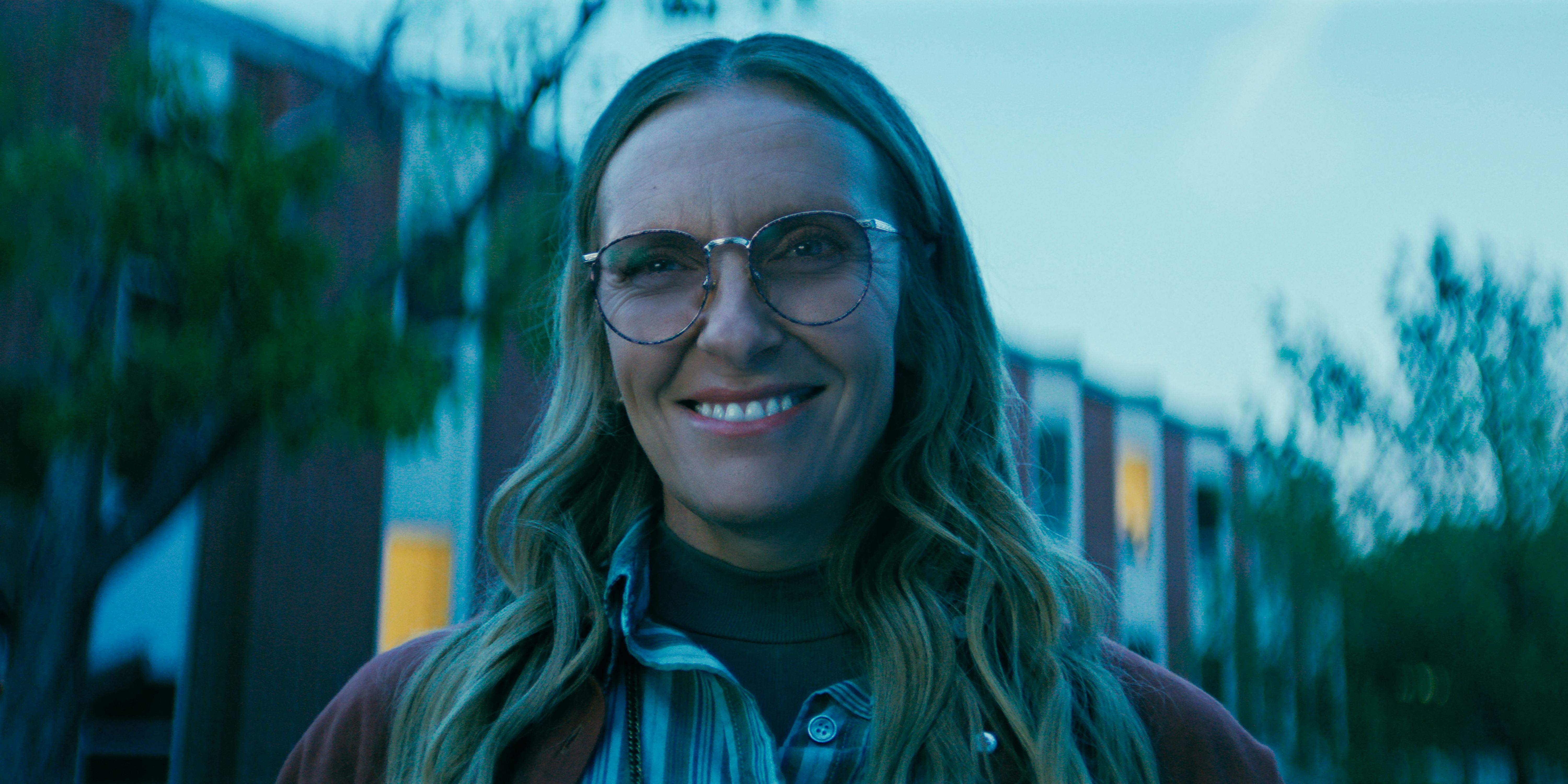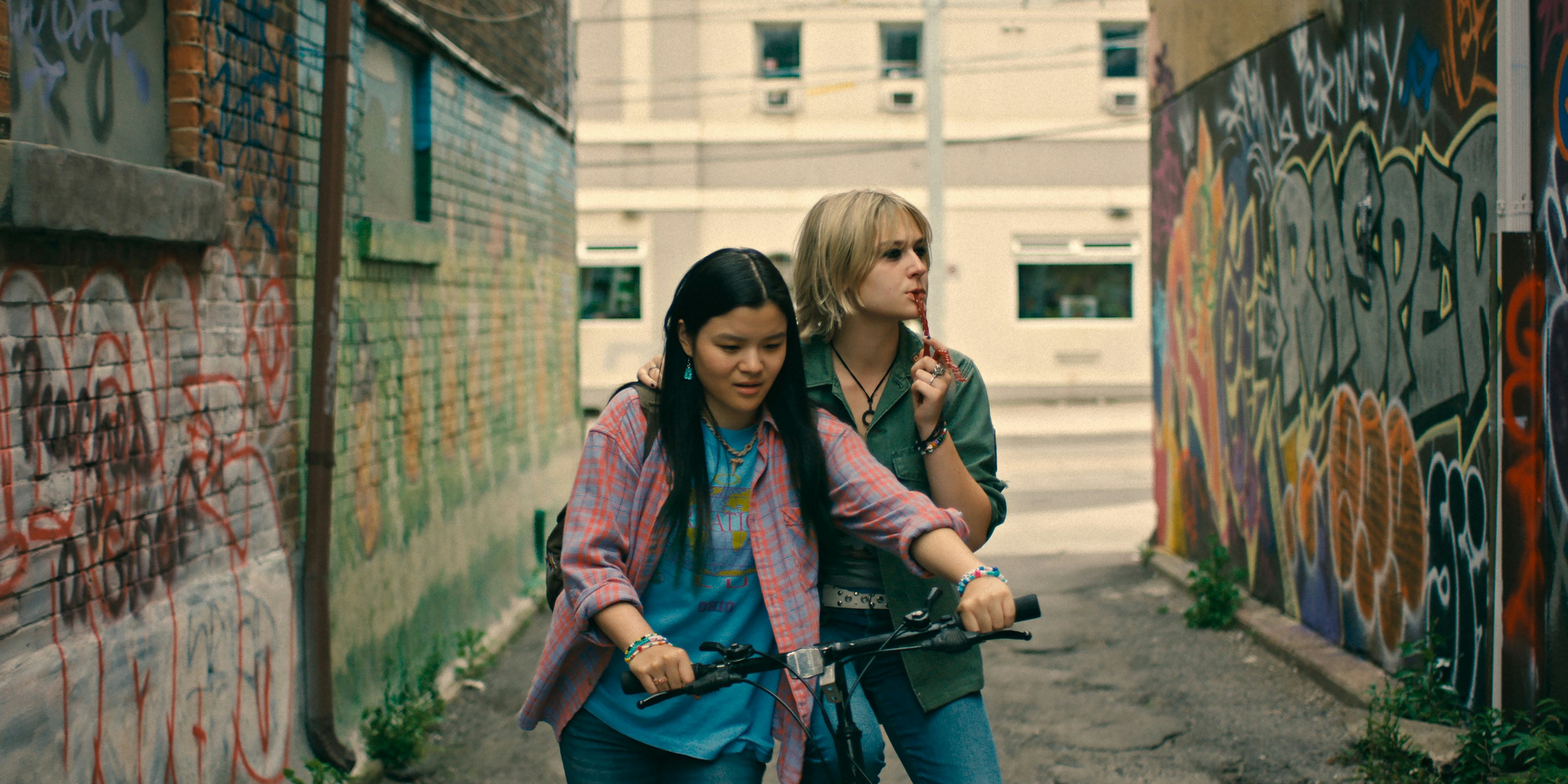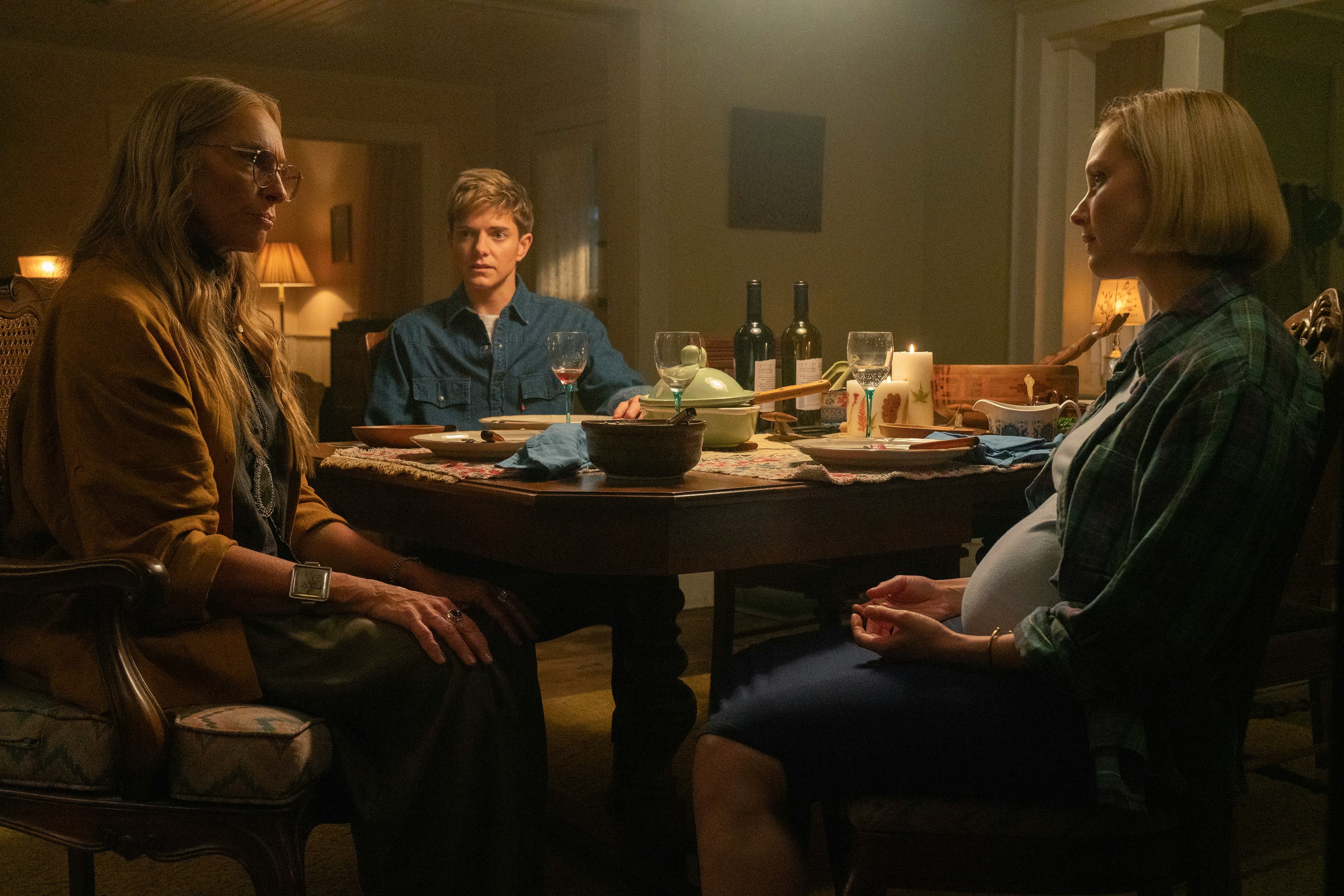
One of the superpowers of television is how a series can take a real-life terror and make it into a horrific threat with only a little exaggeration. This is especially clear in Netflix’s miniseries in particular. Stalkers in Baby Reindeer, scammers in Inventing Anna, liars in Apple Cider Vinegar: these are all true-ish stories taken from real life and turned into chilling TV.
But the latest edition of this subgenre takes it to the next level, a cult thriller that combines a number of horror tropes with the true stories of victims to tell a twisted, almost surreal tale of the troubled teen industry.
Wayward is the brainchild of Mae Martin, the Canadian comedian who previously created the queer rom-com series Feel Good. But while Martin stars in both, Wayward is a completely different kind of show entirely. The series follows two different storylines in 1997: in one, teen Abbie (Sydney Topliffe) is abducted from her bed in the middle of the night and her best friend Leila (Alyvia Alyn Lind) sets off to find her, and in the other, police officer Alex Dempsey (Martin) and his wife Laura (Sarah Gadon) move into a new house in Laura’s quaint hometown where they intend to start a family.

Both storylines are tied together by the same strange institution: Tall Pines Academy, the mysterious boarding school where “wayward” teens are sent for therapy. Tall Pines is inspired by the real schools across the troubled teen industries, where things like late-night parent-sanctioned abductions, aggressive therapy, and abuse and assault are all too real. Paris Hilton even testified before Congress about the abuse she faced in similar institutions.
But Tall Pines has something more. The inimitable Toni Collette plays Evelyn Wade, the charismatic leader of the Academy. Through a wide, toothy smile, she speaks about the hope Tall Pines can provide, but it’s clear that underneath her crunchy-granola exterior, something darker is lurking.
Alex, already wary of Tall Pines’ cheery atmosphere as a trans man from the big city, starts to see the school for what it is, but in investigating, he can’t figure out who he can trust. From his fellow officers, to his neighbors, to his own wife, everyone seems to think that Tall Pines isn’t just safe, it’s the ultimate way to live. Thankfully, with the help of Abbie, he may be able to get to the bottom of the conspiracy.

The biggest strength of Wayward is, without a doubt, the performances of Martin and Collette. Alex is the totally unconventional detective: a little hesitant, always wary, and dead-set on creating a healthy life for his son, something both he and his wife didn’t get to have. Evelyn, on the other hand, feels like a blend of every Toni Collette character we’ve seen so far, but with the creepiness turned up to 11. It’s a role only she could play, and she twists from maternal to malicious and back again as easily as some other actors blink.
Another asset is the 1997 setting, which allows the series to skirt the ramifications the internet has had on the troubled teen industry. Sure, there are some anachronisms — I don’t think anyone back then used the term “dad bod” — but the needle drops make it more than worth it.
It’s all focused around a central mystery that stretches the limits of believability. By the time you reach the finale, it probably has more in common with True Detective and Sharp Objects than any other Netflix original. This is more than just a ripped-from-the-headlines drama: it’s a thriller that will make you want to keep coming back for more, even if there are only eight episodes.







